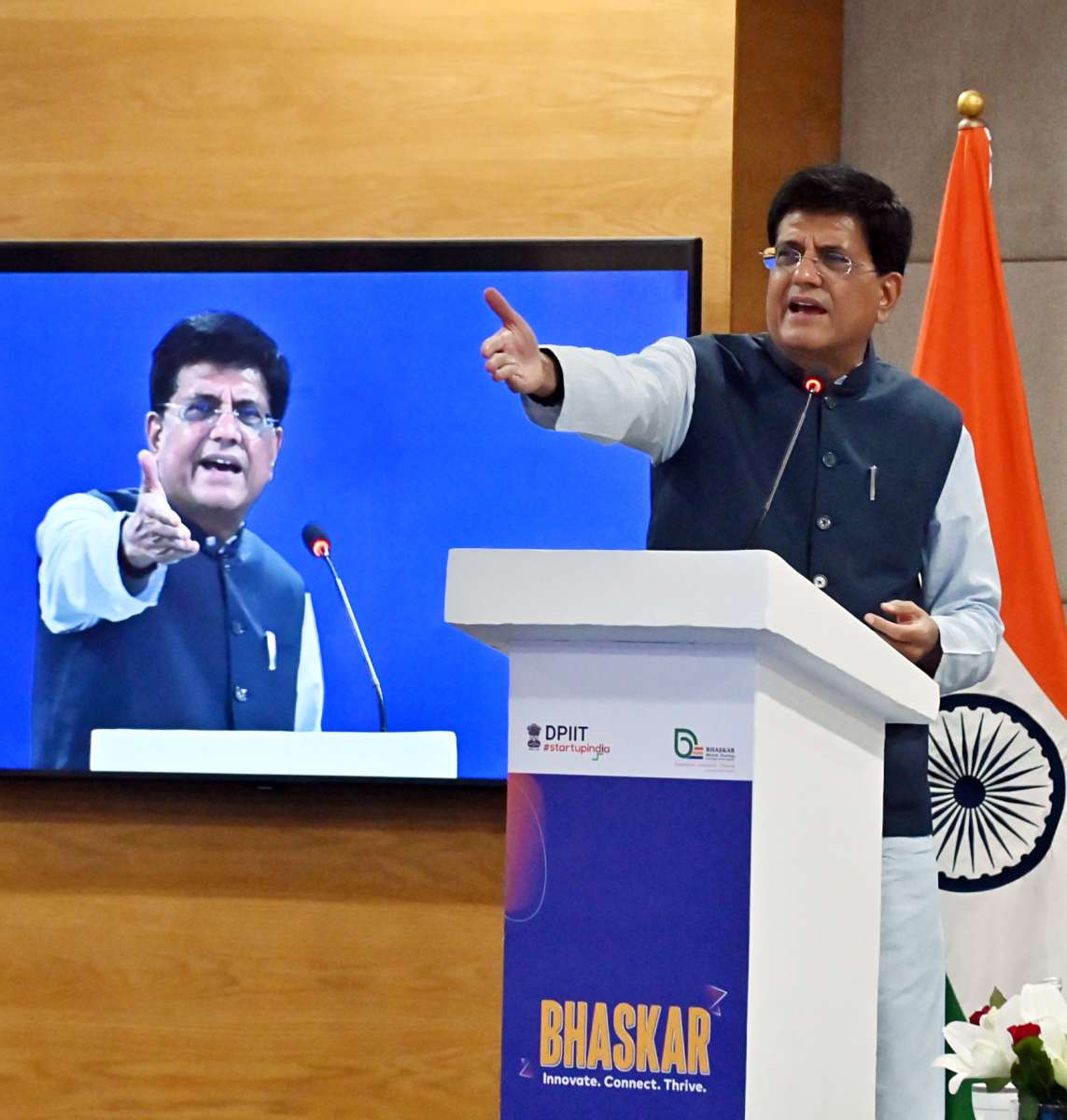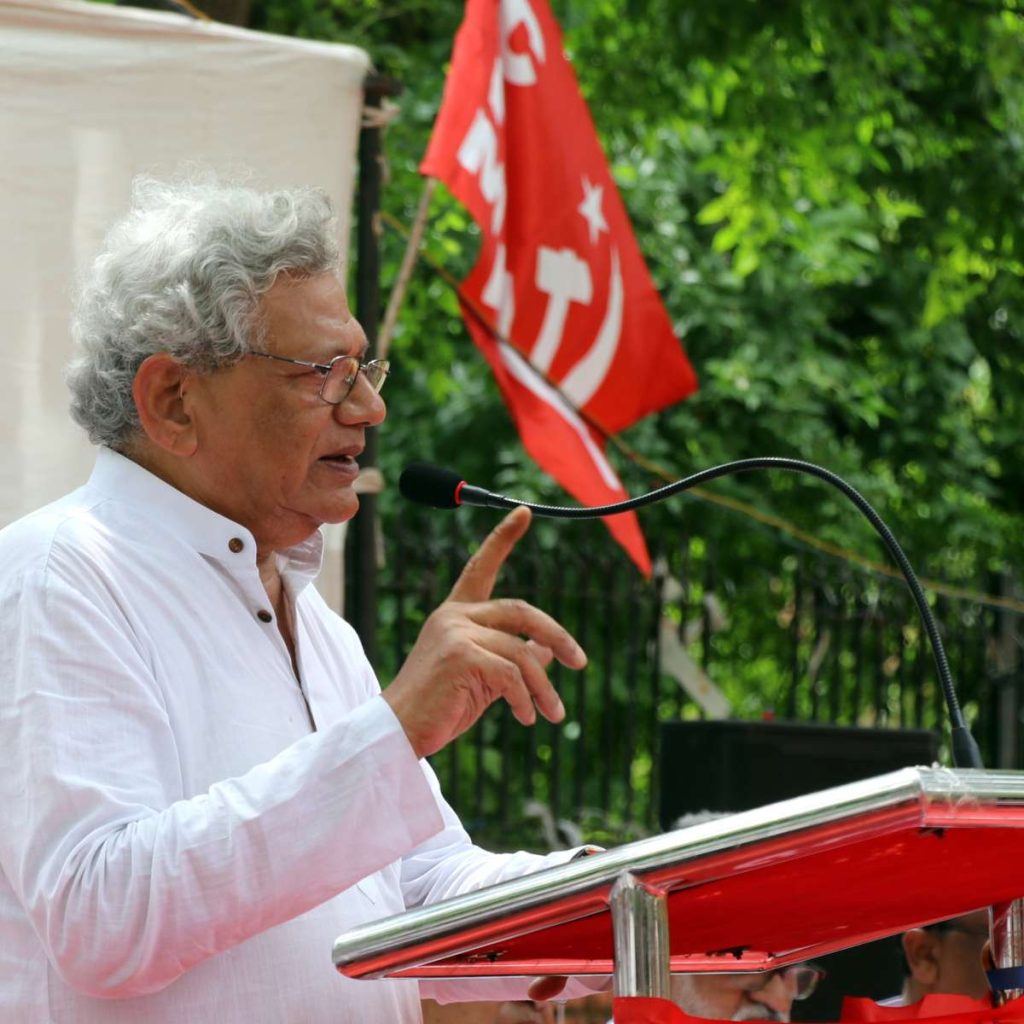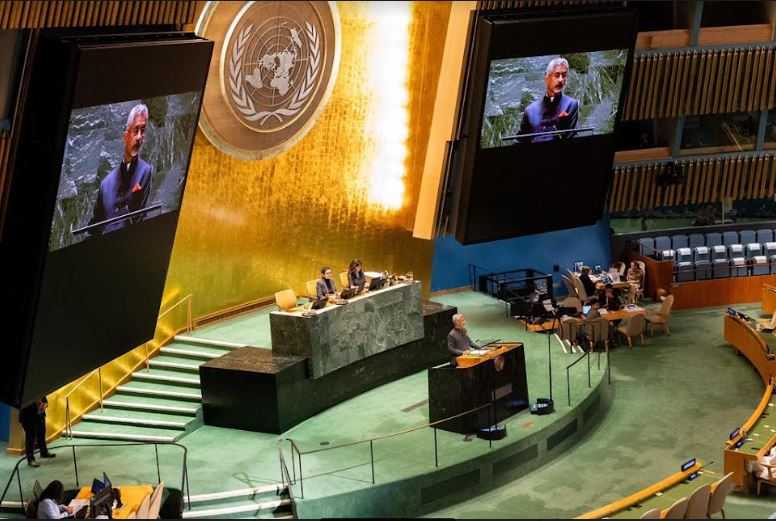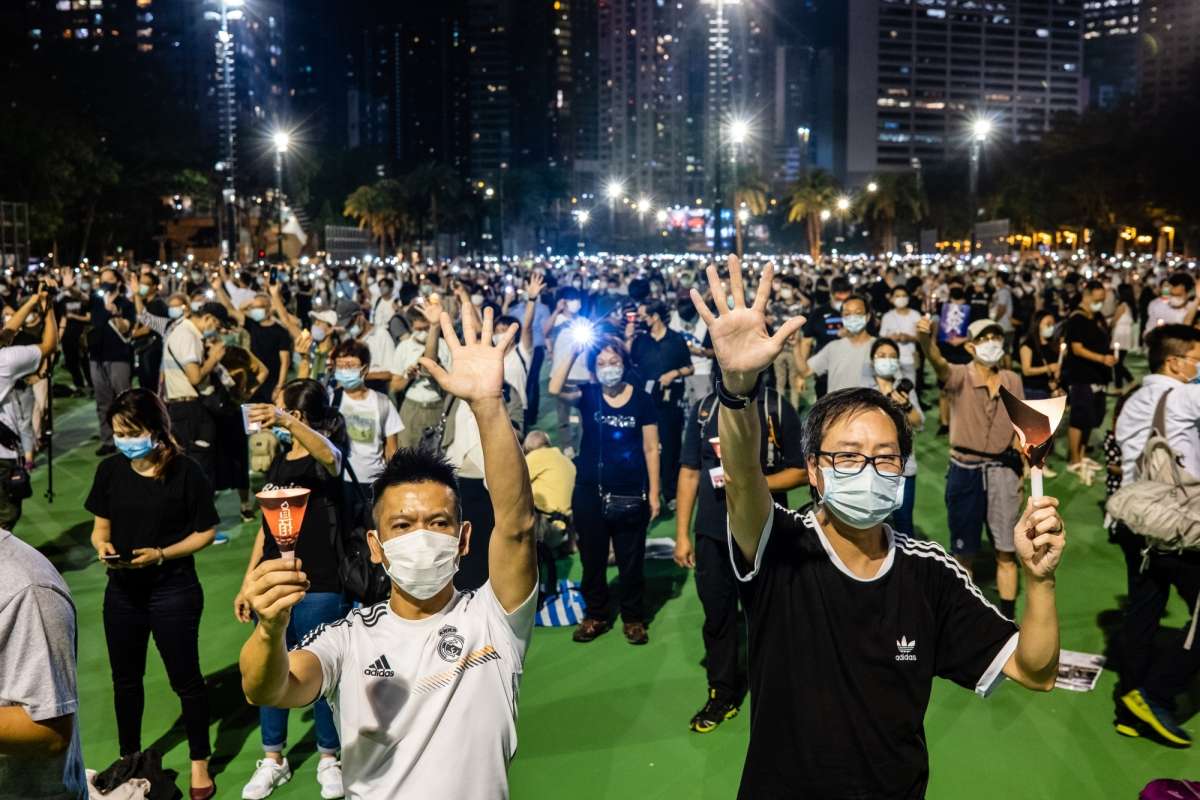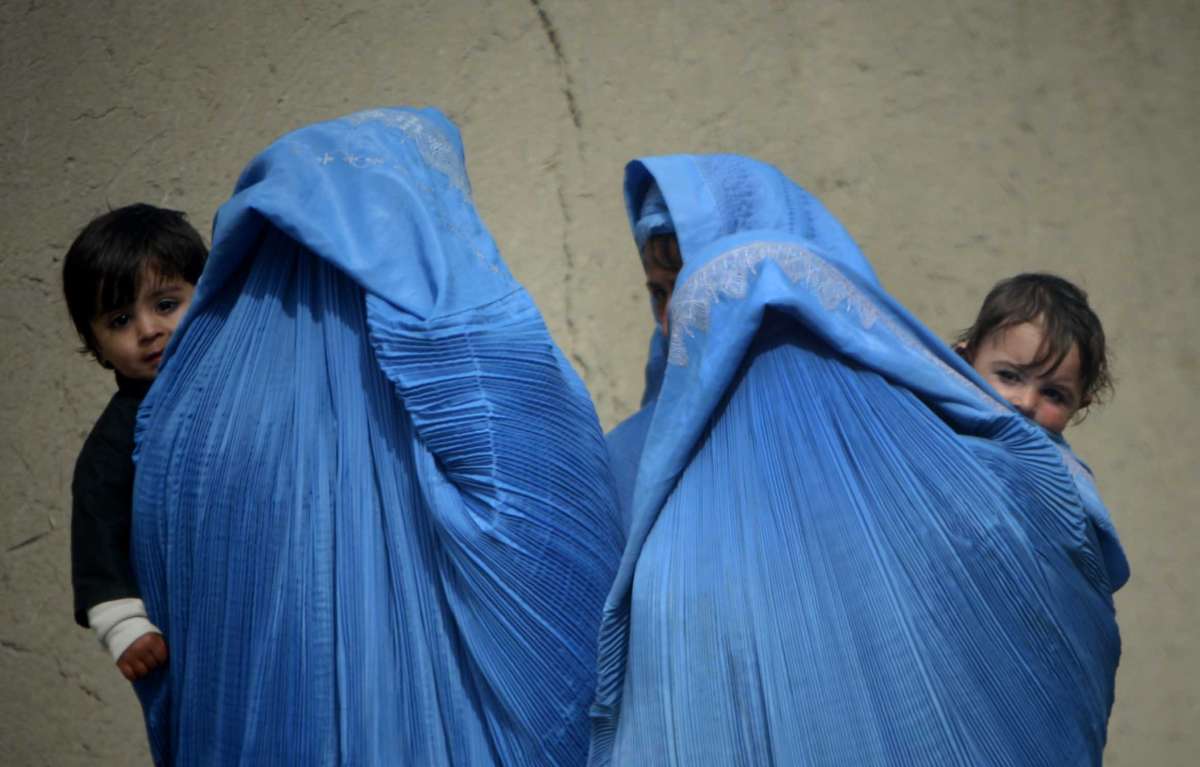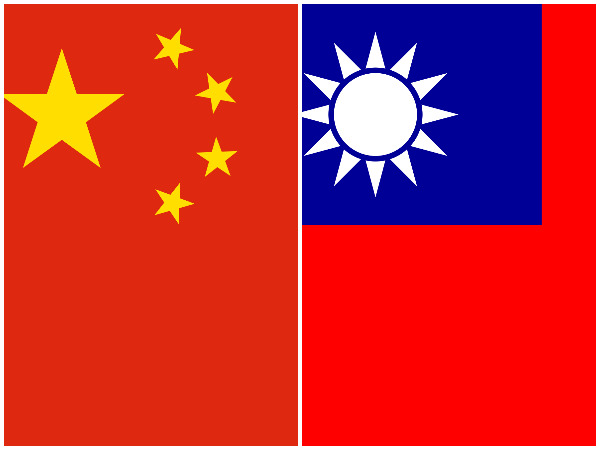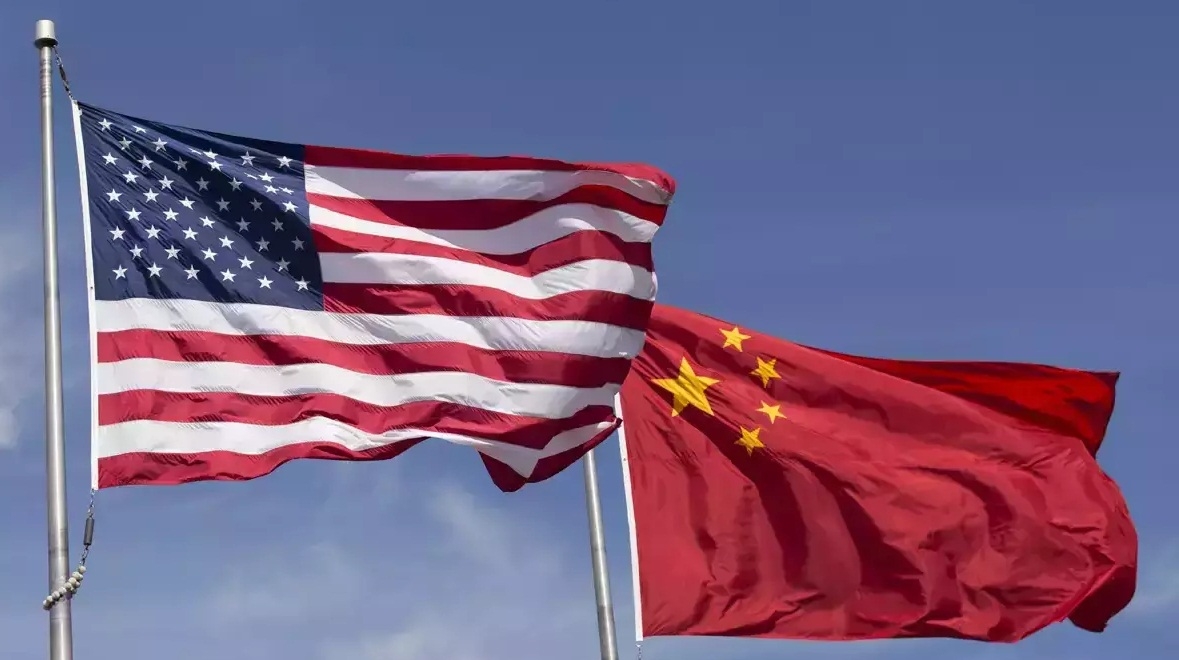Jaishankar said that India’s achievements like landing on the moon, rolling out its own 5G, sending vaccines worldwide, or developing fintech send a message to the world…reports Asian Lite News
While amplifying the voice of the Global South, External Affairs Minister (EAM), S. Jaishankar, presented India’s social and economic “leapfrogging” as a model for the Global South to “provide hope and rekindle optimism” amid the gloom enveloping the world.
Speaking at the General Assembly’s high-level meeting on Saturday, he focused on the dynamics of political and economic power that hobbles the developing countries and sketched alternative models while giving voice to the aspirations of the Global South.
While saying, “The world stands fractious, polarised and frustrated. Conversations have become difficult; agreements even more so,” Jaishankar stayed away from delving into the most fractitious issues — Gaza and Ukraine — that dominated discourse.
He merely said, “Ukraine or the conflict in Gaza, the international community seeks urgent solutions. These sentiments must be acknowledged and acted upon.”
His criticism of the dominant world powers responsible for the inablity to solve the problems was couched in diplomatic talk: “If we are to ensure global security and stability, then it is essential that those who seek to lead, set the right example.”
This approach also avoided having to take sides on these issues where India has maintained a delicate balance between the partisans.
The only overtly political statements were about Pakistan, exposing it as a purveyor of terrorism and warning it of retaliation for attacks.
Showing off a report card on the various programmes from providing clean water and energy to offering digital financial services and loans for entrepreneurs, especially women, he said, “Given the scale of transformation underway in India, each of these dimensions underline that the world’s problems can indeed be tackled.”
“Such leapfrogging possibilities, coupled with people-centric policies and visionary leadership, can be real gamechangers,” he added.
He said that India’s achievements like landing on the moon, rolling out its own 5G, sending vaccines worldwide, or developing fintech send a message to the world.
“A digital public infrastructure and a people’s pharmacy are today examples of what India can readily offer,” he said and differentiated India from the major technology drivers of the world, adding, “It is also an alternative vision where technology is used to empower, not to dominate.”
New Delhi gave the Global South an opportunity “to voice its shared concerns and come together” and for this “we have convened three Global South Summits, the most recent in August 2024,” he said.
EAM Jaishankar had some harsh words for the dominant nations endangering peace and prosperity. “Leaving no one behind means advancing peace, ensuring sustainable development and strengthening human dignity. This cannot be delivered by a UN paralysed when faced with division, conflict, terrorism and violence. Nor can it be advanced if access to fuel, food and fertiliser is jeopardised,” he said.
That is “because trust has eroded and processes have broken down. Countries have extracted more from the international system than they have put in it, enfeebling it in the process”.
Calling for reforming the global decision-making system, he said that progress cannot be achieved “by remaining anachronistic” with “large parts of the world cannot be left behind when it comes to deciding the key issues of our times”.
“An effective and efficient UN, a more representative UN, and a UN fit for purpose in the contemporary era, is essential,” he said making the case for Security Council reform without directly calling for it.
He directed four criticisms at China, but without naming it, on terrorism, its connectivity projects that cut through occupied Indian territories, and its predatory market policies.
“Any connectivity that flouts sovereignty and territorial integrity acquires strategic connotations, especially when it is not a shared endeavour,” an apparent reference to China building roads across Pakistan Occupied Kashmir.
“When capturing markets lacks restraint, it damages the livelihood and social fabric of others” and “over-concentration of production has hollowed out many economies, impacting their employment and social stability,” he said, apparently referring to its state- subsidised manipulation of markets.
EAM Jaishankar also referred to China’s role in protecting Pakistan-based terrorists from UN sanctions.
Without naming Beijing, he said, “The sanctioning of global terrorists by the United Nations should also not be impeded for political reasons.”
Jaishankar said on Saturday at the United Nations General Assembly that when India lands on the moon or rolls out its own 5G stack, it provides hope and rekindles optimism.
Jaishankar said that overconcentration of production has hollowed out many economies.
“In these troubled times, it is necessary to provide hope and rekindle optimism. We have to demonstrate that big changes are possible…When India lands on the moon, rolls out its own 5G stack, dispatches vaccines worldwide, embraces fintech, or houses so many global capability centres, there is a message here. Our quest for a Viksit Bharat or a developed India will understandably be followed closely. An important cause of many getting left behind has been the unfairness of the current globalisation model. Overconcentration of production has hollowed out many economies, impacting their employment and social stability,” he said.
Jaishankar said that several countries have extracted more from these international systems than what they have contributed, which has made it feeble.
“Countries have extracted more from the international system than they have put into it, enfeebling it in the process. We see that vividly in every challenge and every crisis. Reforming multilateralism is therefore an imperative. The urgency of this call is highlighted by the theme of this session,” he said.
ALSO READ: US panel on China urges halt on Chinese drones


